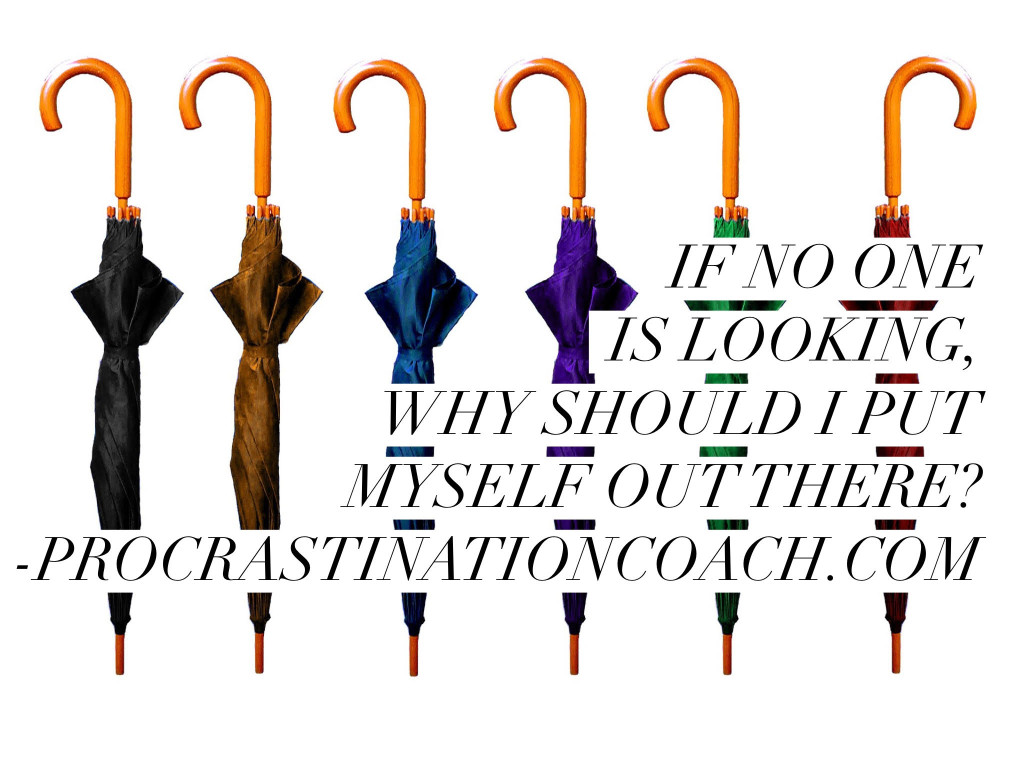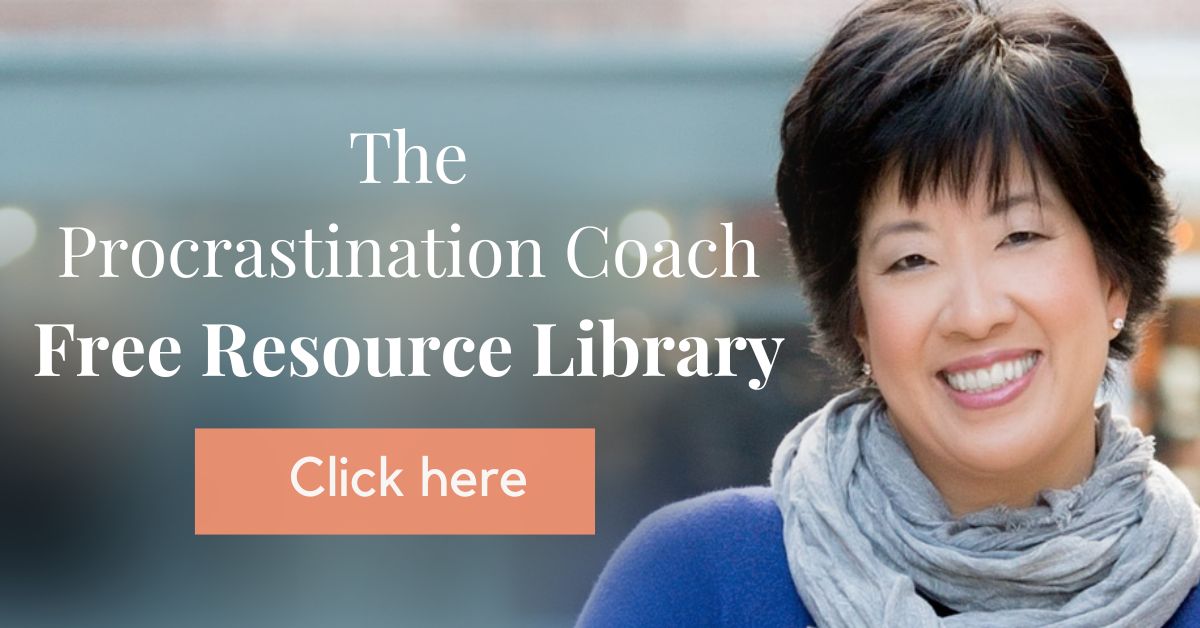 Why should I put myself out there?
Why should I put myself out there?
In some ways, Procrastinators are really really smart. They know what's up when they say to themselves — “If no one is looking, why should I put myself out there?” After all, if we don't put ourselves out there, then:
- time stands still
- we get to feel comfortable
- we get to avoid what we are afraid of
- no one will no how we are feeling
- we won't have to feel embarrassed
- life will just proceed as usual
- we won't have to deal with the stress of handling new challenges
- we won't have to discover new things about ourselves, including areas in which we are weak
- we won't have to exert ourselves
Writing this makes me think of what striving actors must go through. Going to audition after audition, many of which may not be ideal, and going all in. Performing with as much unleashed within themselves as they can manage. Some may even have performance anxiety or stage fright, but audition after audition, they go forward.
What is it about actors that cause them to bypass their own anxiety to move forward? Do they not have self-doubt? Do they not fear rejection and failure? Hmm. My guess is, actors have figured out a way to perform even as they experience feelings of conflict.
Let's get back to talking about Procrastinators. Procrastinators feel they need to shut down functioning once they decide they have reached the end of their safety zone. They are no longer willing to move forward, no matter how important the task is to them, no matter how prepared they might be, and no matter how much they may or may not want to succeed. Interesting.
Investigate what is the point at which you stop. Is it:
- when you're asked to provide your personal opinion?
- when you're asked to be personal?
- when you're asked to express feelings?
- when you are asked to state facts?
- when you feel you need to be perfect?
- when you feel you need to provide the right information?
- when you sense someone is depending on you?
- when you feel your status or stability might be in jeopardy?
- when you feel moving forward might launch you into adult-type troubles?
- when you believe you are not skilled enough to move forward?
There are more types of conflicts than I could ever begin to list fully. And of course, your conflicts will be very different than my own. You want to know mine? My conflicts include:
- feeling too unimportant to be the main actor in any given situation
- feeling doubtful of my capacity to be successful
- feeling like I'm not knowledgeable
- feeling like I'll be troubling other people if I need something from someone else
- feeling like other people won't understand what I need
Procrastinators turn away from looking squarely at their internal conflicts and instead, believe their conflict resides just within their work. Now that seems silly to me after doing twenty years of work coaching Procrastinators. This is silly because never in twenty years has it been just about the work.
When we get stuck, we feel we need to blame something, and it's nice and tidy to blame the blank page on our desk or computer. That blank page is so perfect and innocent, and it doesn't ever yell back or tell you you're sadly mistaken.
Does this mean we need to rid ourselves of our conflicts? Though it may help to reduce the power of our internal conflicts, we will probably never be totally clear of them. After all, they help to make us who we are. We are human, flaws and all. What may be more helpful is reminding ourselves — through our actions — that we can proceed with our lives in spite of our conflicts. We can have full range of motion when we stop allowing our internal hangups to hang us up.
Getting Ourselves to Act
The following is a short list of some techniques to help you get yourself to act, even when you feel burdened by internal conflict:
- Do the tiniest bit on the first day. Repeat this the second day. Gradually increase the amount you can work each day thereafter.
- Write down the conflict that is holding you back. Then write down five reasons why you should not pay attention to the fear that conflict generates. Then do Step 1.
- Remind yourself of the multiple benefits of going through with your task. You'll be happier. You'll be more satisfied. You'll be rid of your feelings of dread. Then do Step 1.
- Let someone know you're ready to work. Tell a person or a group of people that you'll be done with your project by next week. You can even let them know that you are conflicted about it, in order to release the energy you have trapped by not working. Then do Step 1.
- Remove the distractions which destroy your focus. Create a working “zone” where all you can focus on is your one piece of work. Then do Step 1.
You do not need to be perfect to get things done. You do not have to be organized to get things done. You do not need to be in the right mind frame to get things done. Get used to working on the fly, in between appointments, without overthinking. Gradually get rid of the feeling of struggle that tends to get paired with work. Step by step you'll move past your areas of conflict, and you'll get there.
Do I have it totally wrong about actors? Do you experience areas of conflict which seem too large to shake? Do you have tricks of your own to be productive even when you are feeling in conflict? Please share here if you feel comfortable doing so. And remember to follow me on Twitter@ChristineLiPhD because I love it over there.

